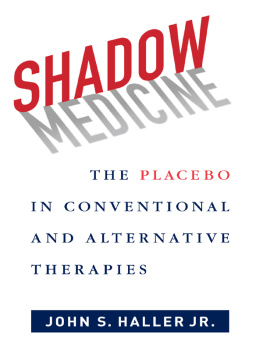Yori Gidron
Behavioral Medicine
An Evidence-Based Biobehavioral Approach
Yori Gidron
SCALab, University of Lille, Lille, France
ISBN 978-3-030-18891-7 e-ISBN 978-3-030-18893-1
https://doi.org/10.1007/978-3-030-18893-1
Springer Nature Switzerland AG 2019
This work is subject to copyright. All rights are reserved by the Publisher, whether the whole or part of the material is concerned, specifically the rights of translation, reprinting, reuse of illustrations, recitation, broadcasting, reproduction on microfilms or in any other physical way, and transmission or information storage and retrieval, electronic adaptation, computer software, or by similar or dissimilar methodology now known or hereafter developed.
The use of general descriptive names, registered names, trademarks, service marks, etc. in this publication does not imply, even in the absence of a specific statement, that such names are exempt from the relevant protective laws and regulations and therefore free for general use.
The publisher, the authors, and the editors are safe to assume that the advice and information in this book are believed to be true and accurate at the date of publication. Neither the publisher nor the authors or the editors give a warranty, express or implied, with respect to the material contained herein or for any errors or omissions that may have been made. The publisher remains neutral with regard to jurisdictional claims in published maps and institutional affiliations.
This Springer imprint is published by the registered company Springer Nature Switzerland AG
The registered company address is: Gewerbestrasse 11, 6330 Cham, Switzerland
Preface
This book has been a journey into my learning, research work, and steps in behavioral medicine and health psychology. You are warmly invited to join the outcome of this journey.
Behavioral medicine is the interdisciplinary field of psychology, neuroscience, and medicine, which investigates the bi-directional relationships between psychosocial factors and health outcomes. It also investigates the underlying neurobiological mechanisms of such associations, a domain called psychoneuroimmunology (PNI). It also includes development and scientific testing of new psychological interventions to affect health outcomes. This book covers all these topics, from doctor-patient communication and patient adherence to preparation for surgery and from psychological risk factors of heart disease to psychological prognostic factors and interventions in cancer.
I included a problem-based learning (PBL) approach and a multi-level analysis, by beginning and ending each clinical chapter with a hypothetical case. The chapter then provides the epidemiology and biomedical background of the disease, the psychological predictors of onset or prognosis in this condition, the PNI findings possibly explaining such associations, and psychological interventions relevant to that health condition. Each clinical chapter ends by returning to the hypothetical case, applying the covered evidence to better treat that patient. The entire book takes a strict evidence-based approach.
Yori Gidron
Lille, France
Endorsement
Behavioral Medicine: An Evidence-Based Biobehavioral Approach by Yori Gidron, Ph.D., a leading investigator of mind-body interactions, beautifully embodies just that because the author writes with both his head and his heart. He clearly discusses the latest research on disease and mechanisms of psychosocial effects on it. At the same time, he conveys understanding and compassion for those suffering with serious illness. He provides useful case examples of helpful and hurtful clinical interactions, assisting the reader to better understand and improve patient care. Health professionals from every discipline will better mind their patients bodies after reading this book.
David Spiegel, M.D.
Willson Professor and Associate Chair of
Psychiatry & Behavioral Sciences
Stanford University School of Medicine
The original version of this book was revised. The correction to this book is available at
Acknowledgments
I wish to dedicate this book first to the memory of my beloved parents, Michael and Erika Gidron; may they rest in peace. We lost them also due to my and our professional ignorance. I dedicate this book also to my beloved children, Aviv, Oriane, Idann, and Aner Gidron, who I wish good health and fulfilment in life.
There are numerous people I must thank: Laure-Anne Thieren for her tolerance and help for many years, as well as my sister Ada and brother Amos and their families; my professors, Joel Norman, Richard Schuster, Ruth Kimchi, Shlomo Breznitz, Patrick McGrath, Karina Davidson, Ray Klein, Vincent Lolordo, and Michael Sullivan; my peer students, Nethanel Snow and Farhad Dastur; and many colleagues and mentors including Reuven Gal, Arik Shalev, Sara Frieedman, Moshe Farchi, Shmulik Ariad, Rivka Berger, Miriam Argaman, Harel Gilutz, Mahmoud Hueihel, Alain (Ilan) Ronson, Darius Razavi, Bianca Gordon, Johan Denollet, Ivan Nyklicek, Nina Kupper, Martijn Kwaijtaal, Flortje Mols, Manos Karteris, Brigitte Velkeniers, Jo Nijs, Martin Zizi, Reginald Deschepper, Filip Germeys, Antonio Giangreco, Alexis Cortot, Eric Lartigau, Sophie Lelorain, Delphine Grynberg, Mathias Chamaillard, Julian Thayer, Hideki Ohira, Luca Vannucci, David Spiegel (the book evaluator), and Giulia Plat for entering the references. I thank my dear past and present doctoral students, Bina Nausheen, Emilie Arden-Close, Rachel Sumner, Marijke De Couck, Danial Herzog, Bibiana Fabre, Einav Levy, Eowyn Wittenberghe, Eva Reijmen, and Laura Caton, and many master students. If I forgot someone, please forgive me. I also thank each patient and study participant who took part in my studies along this voyage, to whom we owe our knowledge. Special thanks for Redford Williams initial important comments.
Every book is a persons own story, his or her summary and interpretation of what they know, in this case of behavioral medicine. This is my story. I hope it will serve many of you well.
Shalom,
Yori Gidron, PhD
Chair of Psychooncology
SCALab, Lille University, France
French National Cancer Institute - lINCA
1. Models of Stress and Methodological Considerations in Behavioral Medicine
What Is Behavioral Medicine?
Behavioral medicine is a scientific and clinical domain incorporating scientific models, empirical knowledge, research methods, and clinical skills from psychology and medicine. Behavioral medicine is the field which scientifically investigates the bi-directional relationship between psychosocial factors and illnesses and health and applies this knowledge to patient care. As such, it is a domain that is, or needs to be, taught in medical schools and in nursing schools, as part of medical education, as well as in health psychology courses and programs. Related domains are health psychology and medical psychology. While some authors may wish to distinguish between these domains, I personally think the differences are not large nor are they very important. The agenda and potential importance of these topics for science and patient care are greater than any such semantic endeavor. Topics in behavioral medicine include examining which factors predict recovery from surgery , whether anger triggers heart attacks, whether and how hopelessness can accelerate tumor progression, whether providing elderly people with control has any beneficial health impact, whether child attachment influences childrens health outcomes during illnesses, what neuroimmunological factors mediate the relationships between psychosocial factors and diseases, and whether psychological interventions can improve patients health status. I shall attempt to cover all these questions in this book, step by step, carefully but purposefully and systematically. Multiple domains from psychology converge into behavioral medicine including personality , social psychology, clinical psychology, learning and behavior, biological psychology, perception and cognitive neuroscience, and neuropsychology , to name a few. Furthermore, the topics of immunology , neuroimmunology , epidemiology, internal medicine, pathology, genetics, and psychiatry are main medical domains which converge into behavioral medicine as well. Thus, one main challenge for the student of behavioral medicine is to try to grasp this vast array of knowledge and information. Research methodologies from psychology , medicine, and epidemiology are heavily used in behavioral medicine, to which we shall relate in this chapter as well.










